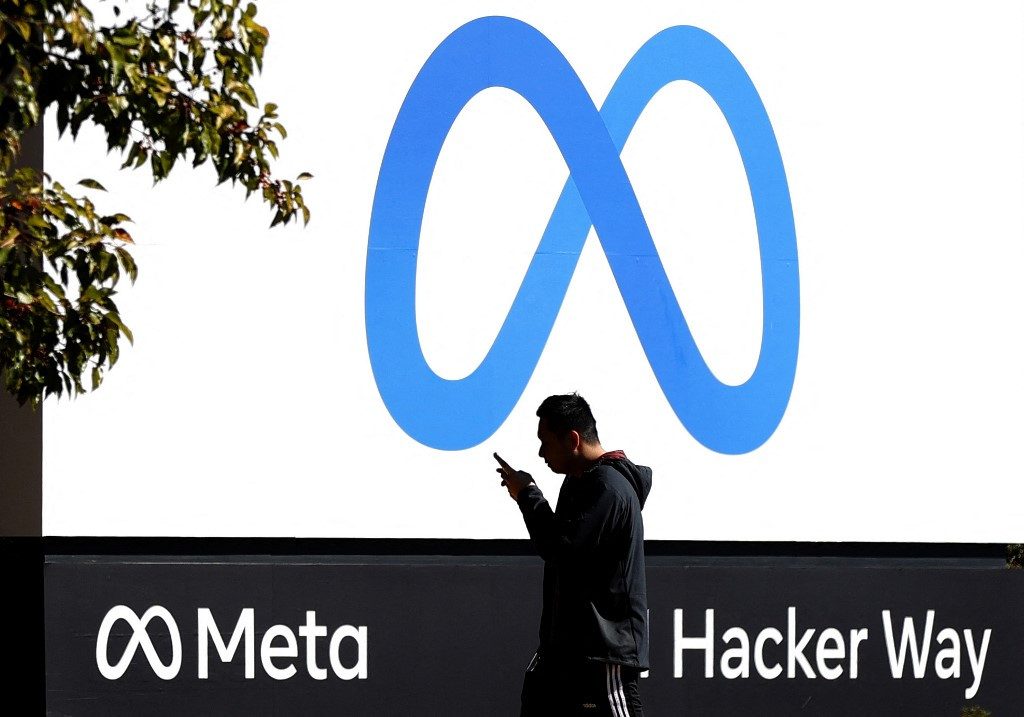Popular Reads
Top Results
Can't find what you're looking for?
View all search resultsPopular Reads
Top Results
Can't find what you're looking for?
View all search resultsMedia sustainability draft ‘unworkable’: Google, Meta
Tech firms express willingness for further talks with government on proposed regulation.
Change text size
Gift Premium Articles
to Anyone
G
oogle and Meta have expressed their unease with the draft media sustainability regulation submitted by the Communications and Information Ministry to the State Secretariat on July 24.
Both of the global tech giants called the proposed presidential regulation "unworkable" and expressed their desire for further talks with the government to explore possible changes.
Meta said the text’s focus on financial payments from digital platforms to media companies did not reflect a spirit of collaboration between the two sides. Meanwhile, Google argued that the legislation, if implemented without changes, might limit the availability of content from small news publishers.
The ministry retorted that the proposed regulation only pushed for business-to-business (B2B) agreements between digital platforms and media companies, which could also take the shape of skills training, for instance, instead of revenue sharing.
The ministry also stated that small media companies could still get online visibility if the proposed regulation was implemented, as long as they had been verified by the Press Council.
The ministry has confirmed that the latest draft of the regulation on media sustainability would require digital platforms to prioritize news from media outlets verified by the Press Council.
The draft also pushes for business relations between media companies and digital platforms, which could include financial compensation. If there is a dispute over a contract, either party may bring it to an independent committee to be established by the Press Council.
In response, Google said the draft could restrict public access to a diverse range of news sources by giving a committee the power to decide what content was allowed to appear online and which publishers were allowed to earn revenue from advertising.
"New powers granted to a single, nongovernment body formed by and including representatives of the Press Council, will only benefit a select number of traditional publishers by limiting which content can be shown on our platforms," Google's vice president of government affairs and public policy for Asia Pacific Michaela Browning said in a statement on July 25.
According to Browning, the regulation would favor a limited set of news publishers and impose restrictions on Google's ability to surface diverse information from the remaining thousands of publishers, including hundreds of small publishers grouped under Serikat Media Siber Indonesia (SMSI).
"This would impact Indonesians seeking to find a plurality of opinions online and could ultimately mean they will find less impartial and less relevant information," she stated.
Meanwhile, Meta took issue with the proposed regulation's focus on payments from tech companies for news links shown on their platforms, such as Facebook and Instagram.
"A regulation that compels Meta to pay for links for content that we do not post, and which are not the reason the vast majority of people use our platforms, is neither sustainable nor workable," Meta's director of public policy for Southeast Asia Rafael Frankel told The Jakarta Post on Wednesday.
The statement is in line with the firm's stance regarding Canada’s somewhat similar Online News Act.
On Tuesday, Meta confirmed that it had begun the process of making news unavailable on its platform in Canada. News links and content posted by news publishers and broadcasters would no longer be viewable by users in the North American country. Also, users would no longer be able to share news articles on Facebook or Instagram.
Meta explained that users did not really use its platforms for news. On the contrary, news outlets voluntarily shared content on its platforms to expand their audience and support their bottom line.
"The legislation misrepresents the value news outlets receive when choosing to use our platforms. It is based on the incorrect premise that Meta benefits unfairly from news content shared on our platforms, when the reverse is true," the firm said in its decision in Canada.
Both Meta and Google said they remained hopeful that they could engage in further dialogue with the Indonesian government on the draft. The latter even proposed a collaboration for its content curation and licensing program called News Showcase, which has been launched in other Asian countries, such as India and Japan.
"While we are disappointed with the current direction of the proposed regulation, we still hope to reach a workable solution. We want to continue to explore approaches that support a balanced news ecosystem in Indonesia, one that delivers quality news for everyone and allows all news publishers, large and small, to thrive," Google's Browning stated.
Flexibility demanded
Responding to the complaints, the Communications and Information Ministry’s director general for information and public communication, Usman Kansong, said the main spirit of the draft was to provide high-quality journalism to the general public. Thus, it would not limit news distribution.
"We’ve only pushed for the prioritization of news from press companies that have been verified by the Press Council. What about small publishers? They could also apply for verification from the Press Council," Usman told the Post on Thursday.
He explained that the regulation would only require digital platforms to have B2B partnerships with media companies, while the format could be decided by both parties.
"[The agreement] could be paying for links, skills training, a revenue split or data sharing," Usman said.
Usman said the ministry had invited Meta and Google for harmonization meetings on the matter. Should the companies have more suggestions, he encouraged them to discuss those with the State Secretariat, as the draft had been submitted to it.










